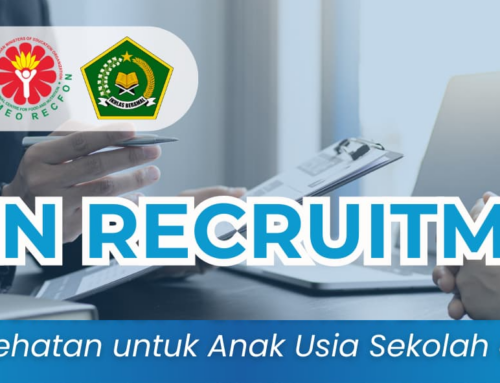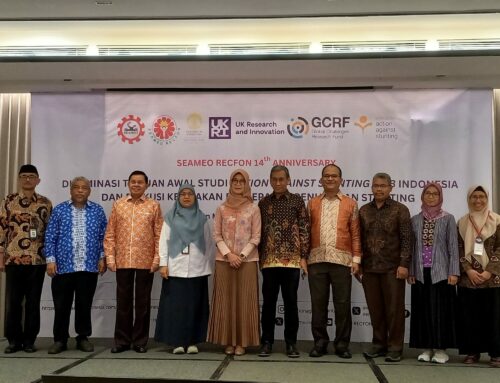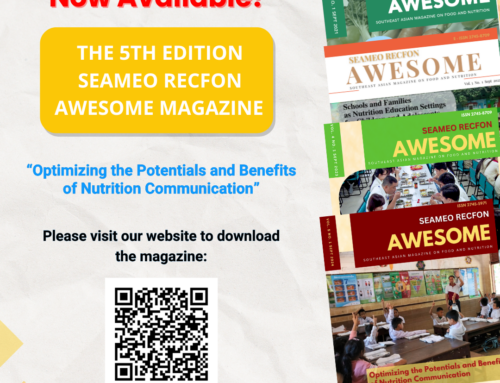SEAMEO RECFON conducted a Workshop on Preparation for Nutrition Goes to School (NGTS) Program Institutionalization on Monday, 19 June 2023, which was attended by 26 schools from 6 NGTS program sites: Bogor City/District, Cimahi City, Cirebon City, Klaten District, Malang District, and Sambas District. This workshop aimed to socialize the criteria for the schools to qualify for the NGTS institutionalization phase, obtain updates on the NGTS progress and challenges of the schools, as well as RECFON’s mechanisms for providing assistance to them during the NGTS institutionalization phase.

Dr. Zainun Misbah, Acting Director of SEAMEO RECFON opened the workshop by giving opening remarks. Then, Dr. Luh Ade Wiradnyani, Coordinator of NGTS Program, presented the four phases of NGTS Program which consist of (1) socialization; (2) orientation; (3) strengthening; and (4) institutionalization. Each school that participates on NGTS program has difference achievement on each phase according to the availability of their resources. Dr. Helda Khusun and Dr. Dwi Nastiti Iswarawanti, Experts of SEAMEO RECFON, delivered their presentation about the School Readiness on NGTS Program Institutionalization.


Currently, 2.234 schools are on socialization phase, 918 schools on orientation phase, and 65 schools on strengthening phase where 26 schools have been identified for institutionalization phase this year. Therefore, SEAMEO RECFON and academic partners need to give assistance for the 26 schools, particularly on the monitoring and evaluation through Information System for Monitoring NGTS Program (SIPP NGTS). Schools that achieve the criteria of institutionalization phase will be recognized with a Certificate of ” Excellence” during the 13th SEAMEO RECFON Governing Board Meeting in September 2023.
At the end of the workshop, all schools agreed to proceed to institutionalization phase and its consequences on their NGTS activities. They also conclude several follow up activities for the next step especially on advocacy to the District Education and Culture Office and stakeholders, as well as roles/contribution mapping of the schools and their academic partners.




